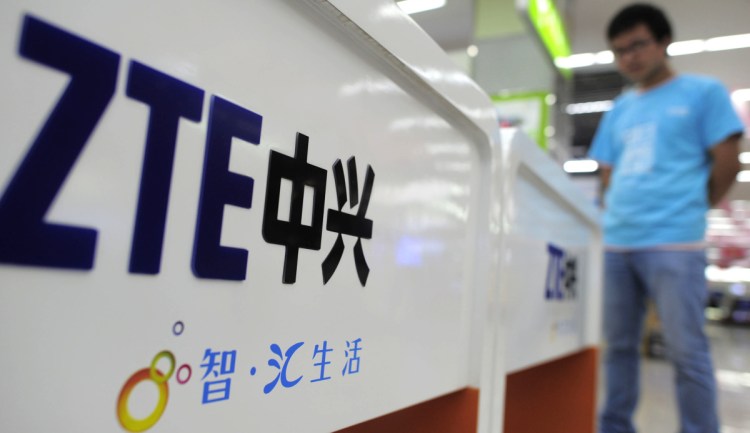HONG KONG — A Chinese tech giant brought to its knees and delays for imported U.S. cars, apples, lumber and other agricultural products are early signs the widening trade dispute between China and the U.S. is exacting a toll on both sides.
More talks aimed at resolving the conflict are planned for next week in Washington, while both sides dig in for a fight over their trade imbalance.
The tech company, telecommunications equipment and smartphone maker ZTE said Wednesday that it’s ceasing “major operations” after the U.S. last month banned it from doing business with American suppliers for seven years as a punishment for illegal exports.
Also this week, businesses and officials reported that American products are running into delays in customs clearance because of stepped-up inspections at Chinese ports, suggesting Beijing may be making life tougher for U.S. companies as the dispute drags on.
ZTE’s crippling business ban stems from a case dating to before the Trump administration, but analysts say the outcome was worse than expected, reflecting a deterioration in trade relations as the two countries vie for technological dominance.
“It has become really political now,” said Nikhil Batra, a telecom analyst at IDC. “There would be wider consequences than for just the telecom industry” and for the companies directly involved, he said.
The U.S. Commerce Department’s ban cut off ZTE’s access to vital technology and components such as semiconductors from U.S. suppliers.
ZTE said in a statement that is has enough cash and will seek to fulfill its contracts. It was unclear if the company is planning to shut down; last week, during trade talks in Beijing Chinese officials appealed to their U.S. counterparts to end the ban.
But in another sign of fallout from the sanctions, Australian telecom company Telstra said Thursday it will stop selling the company’s mobile phones and broadband devices because the U.S. ban prevents ZTE from making them.
“This was a difficult but necessary step,” Telstra’s head of innovation and strategy, Michele Garra, wrote in a blog post .
ZTE sells smartphones globally and supplies networks or equipment to some of the world’s biggest telecoms companies. Losing access to U.S. suppliers is a heavy blow for it and the companies it buys from. The company is the No. 4 smartphone vendor in the U.S., where it also sources more than 40 percent of its components, according to IDC data, a multibillion-dollar revenue stream for suppliers like Qualcomm and Intel. Finding alternate suppliers won’t be easy, “therefore, this U.S. ban would be a fatal crisis for any company,” said Yan Sufei, analyst at Zero Power Intelligence Group. “We can’t rule out that there will be layoffs later on.”
At the same time, U.S. companies exporting to China are seeing their goods held up at China’s ports.
Customs officials were stepping up checks on Ford vehicles for stricter inspections of their emissions systems, ostensibly to comply with new regulations. Last year, Ford imported 18,819 autos, including Lincoln-brand vehicles, which arrived at ports in Shanghai and Tianjin.
Send questions/comments to the editors.


